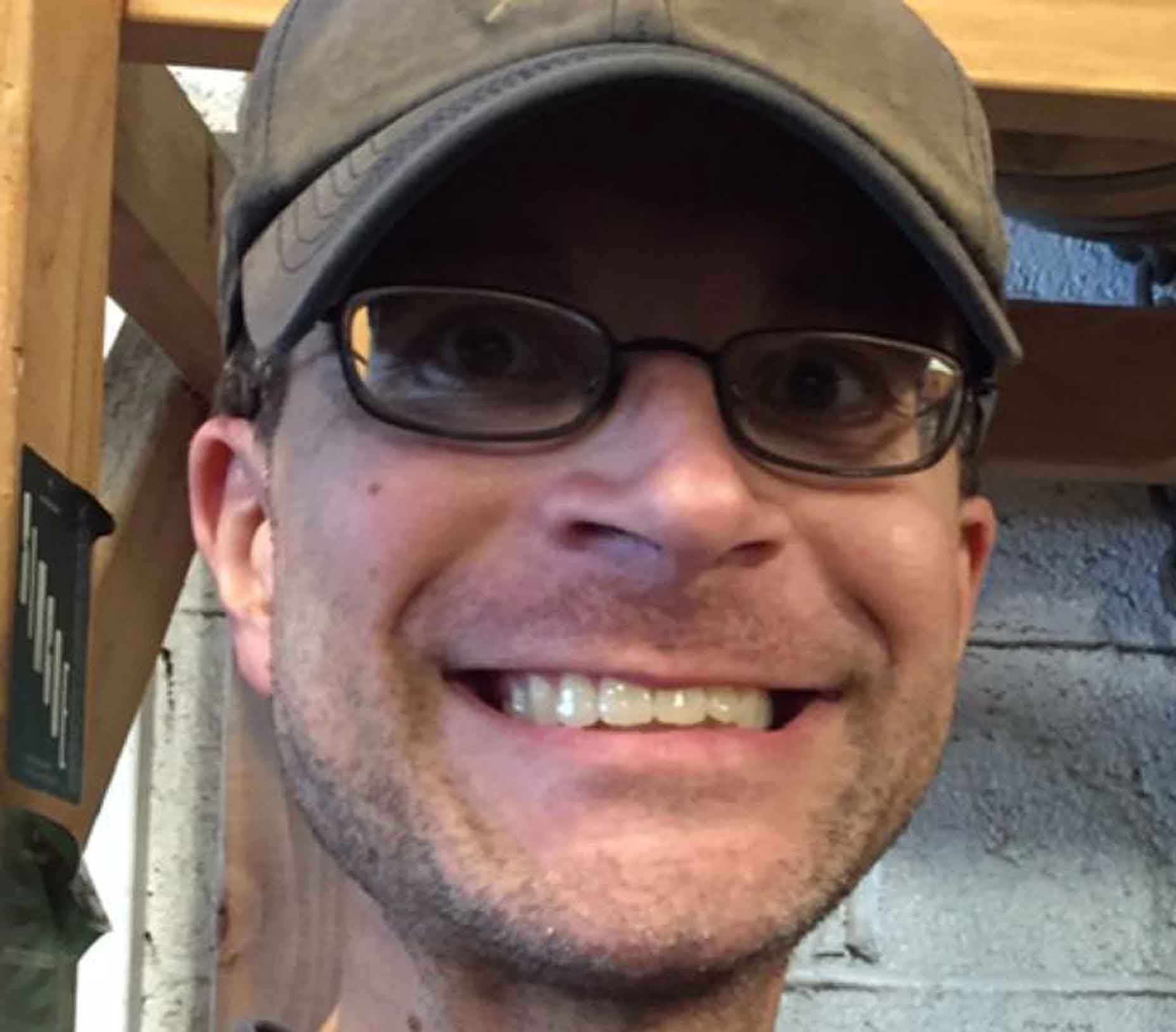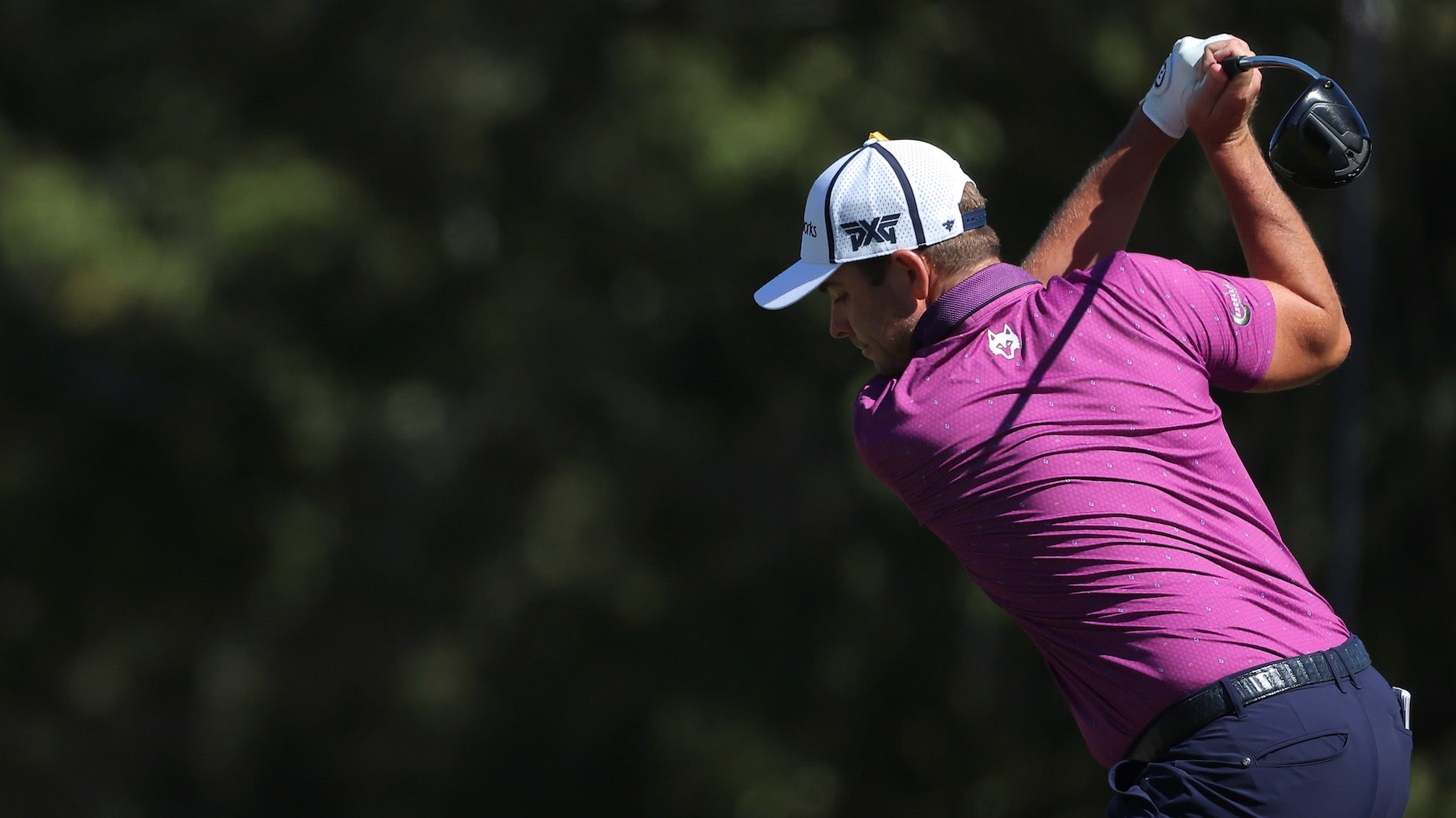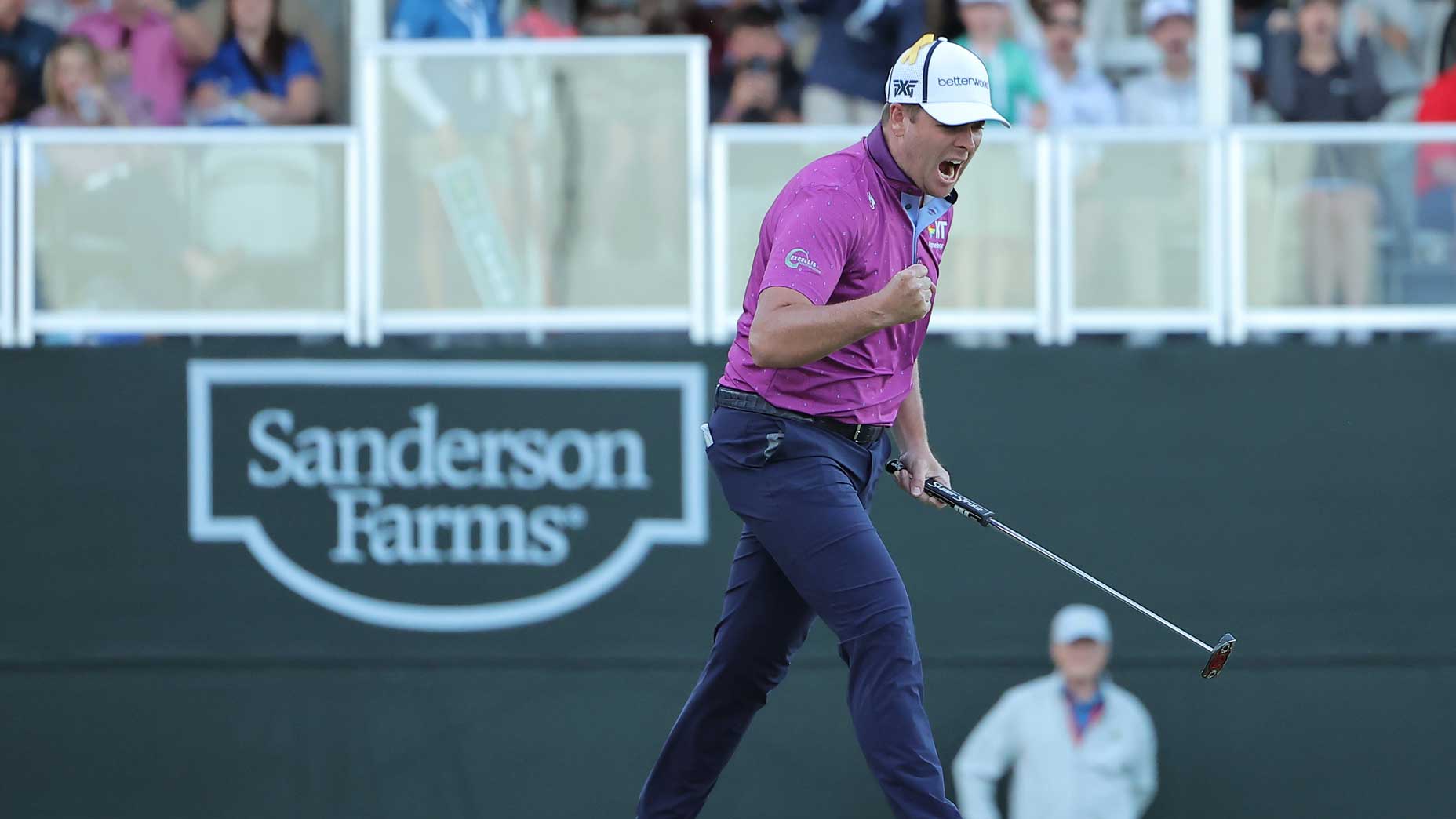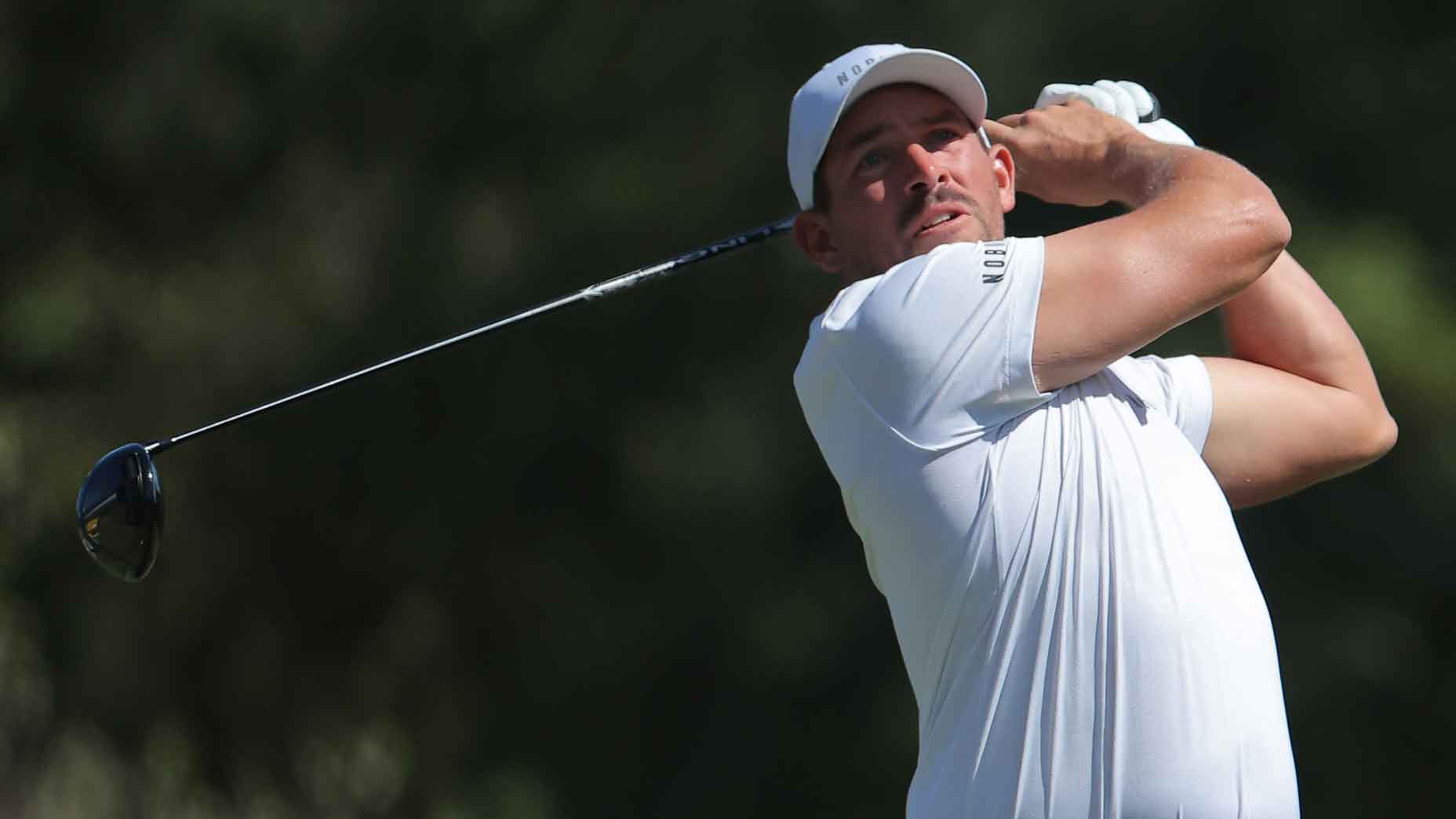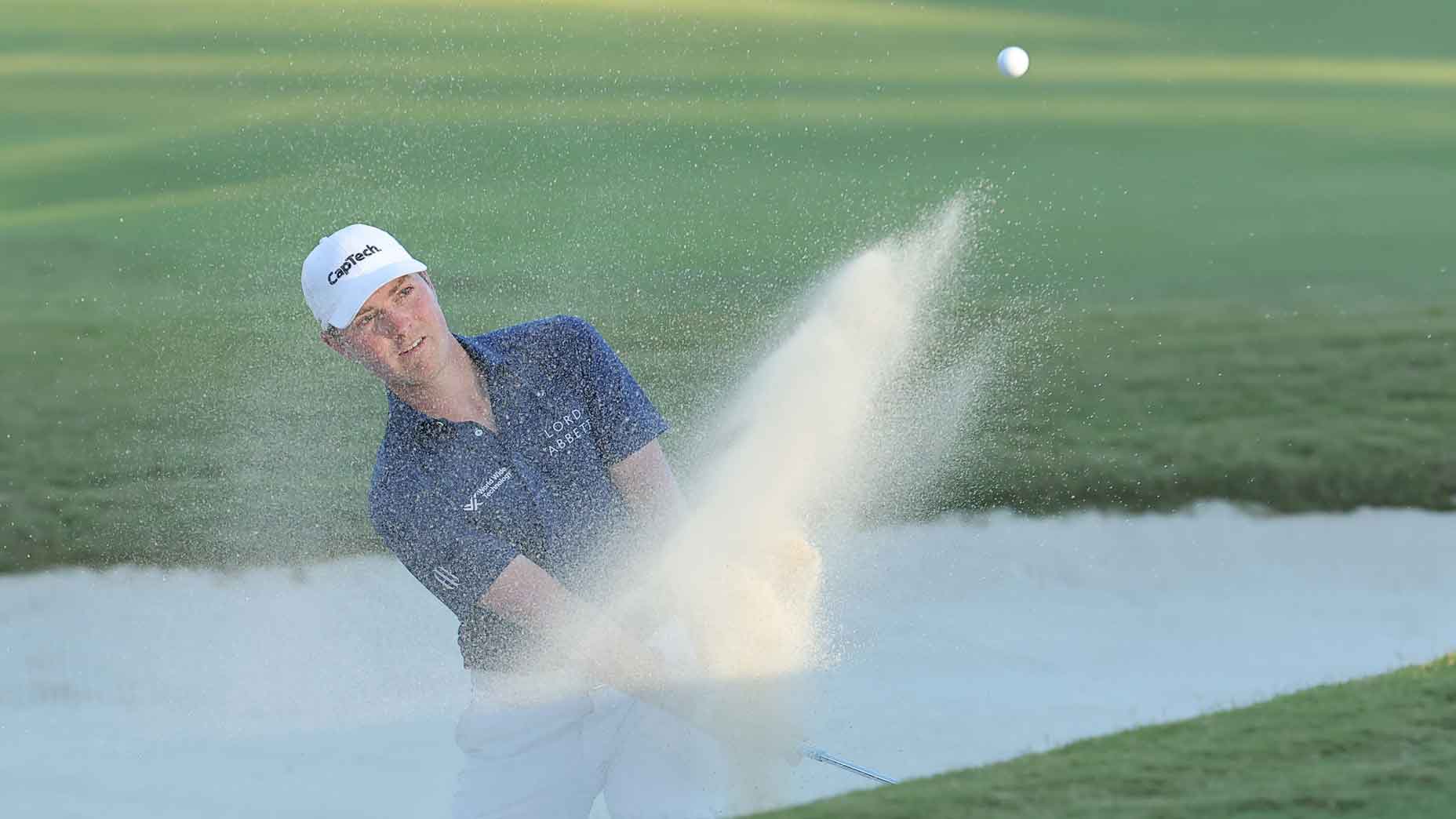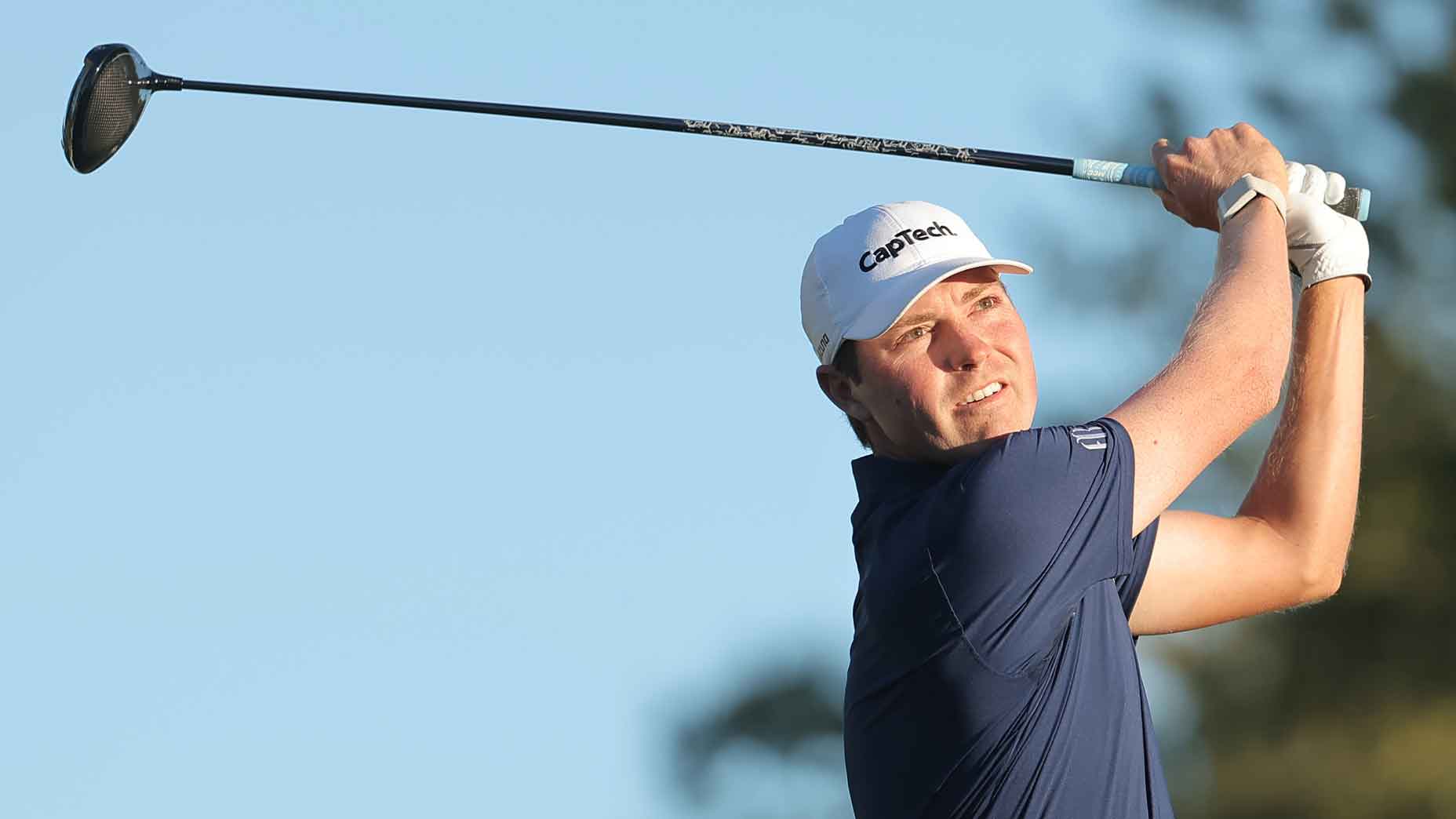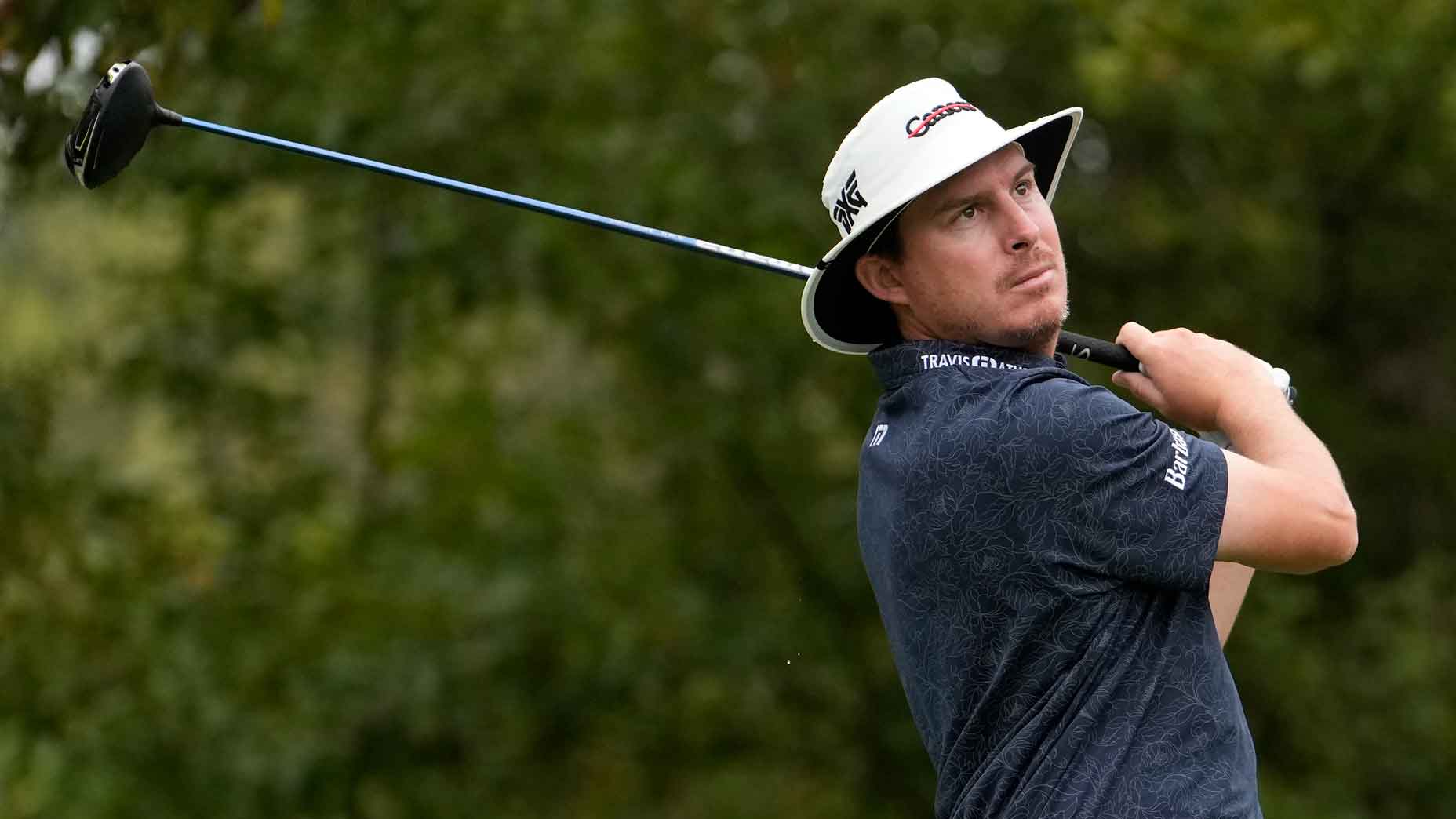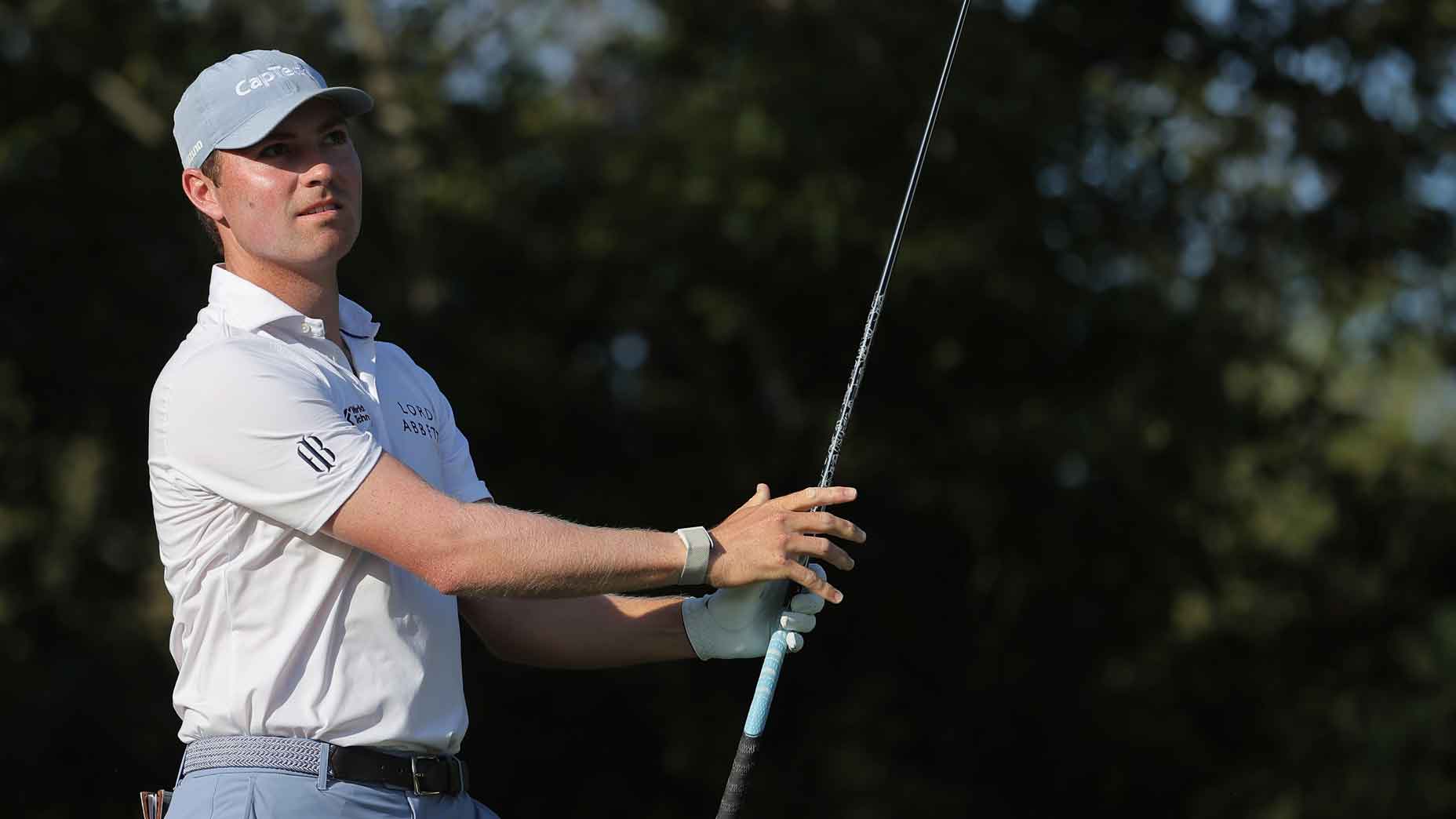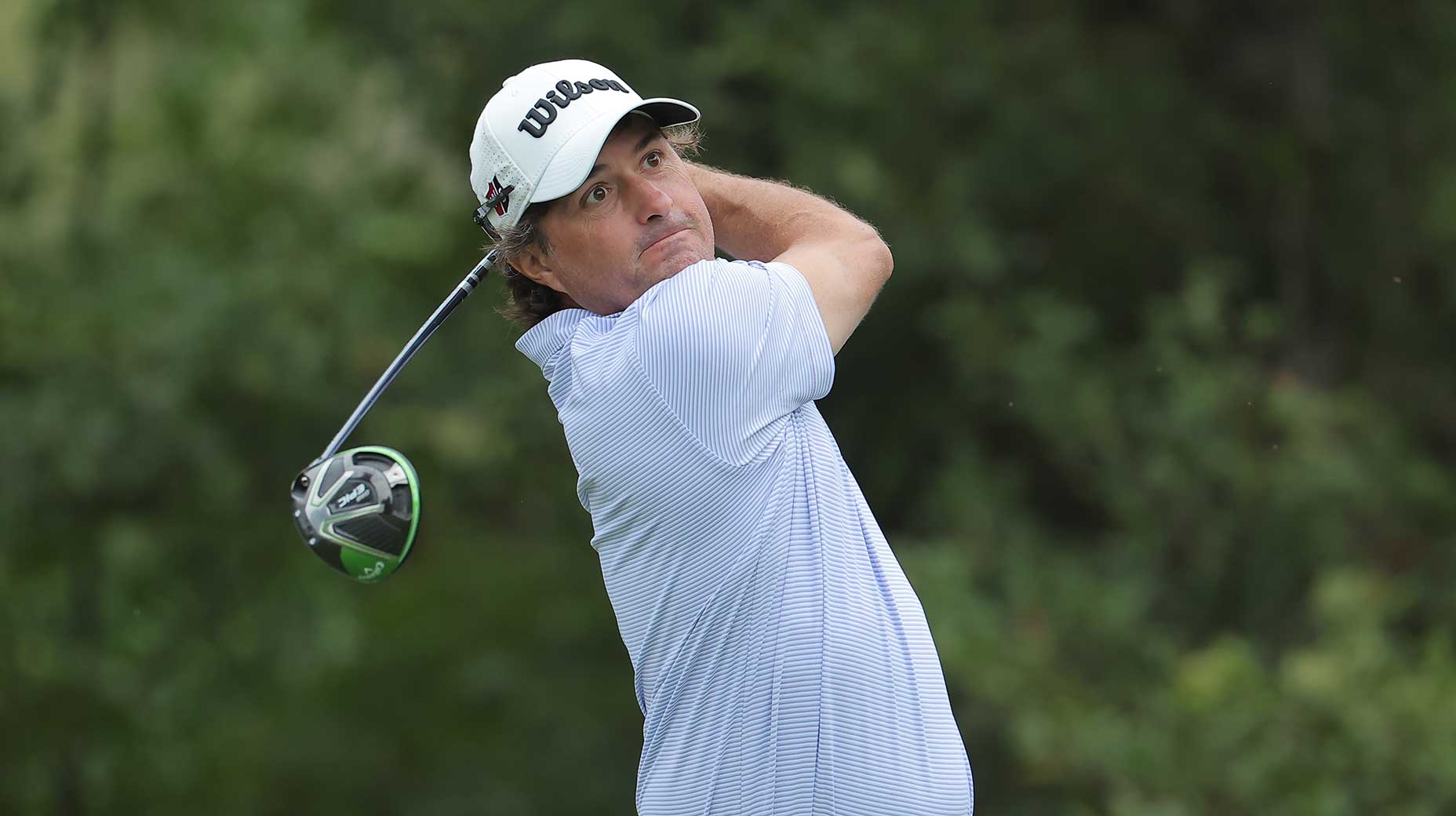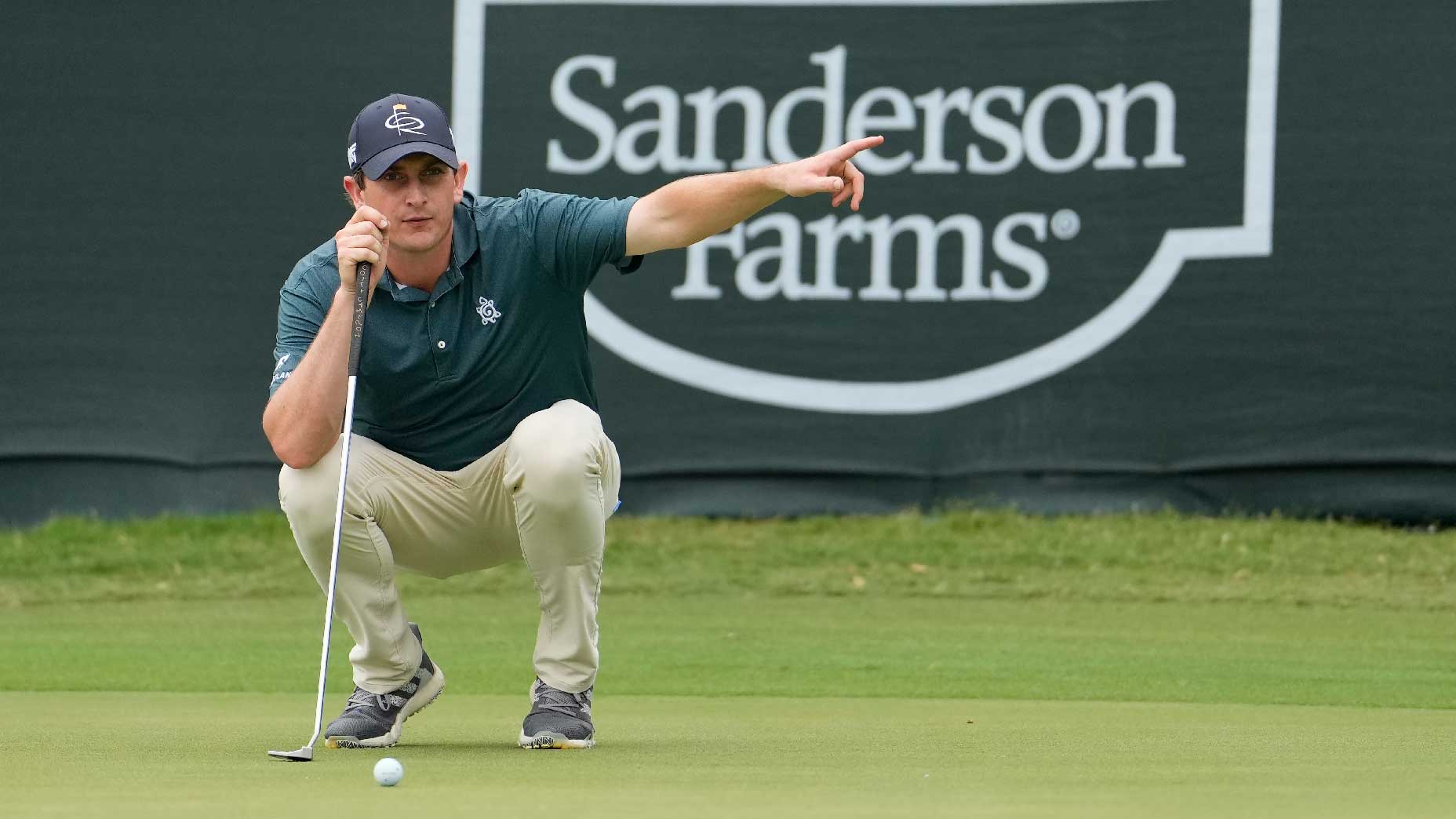Six years ago? A virus attacked his brain. Now? He has week’s best story
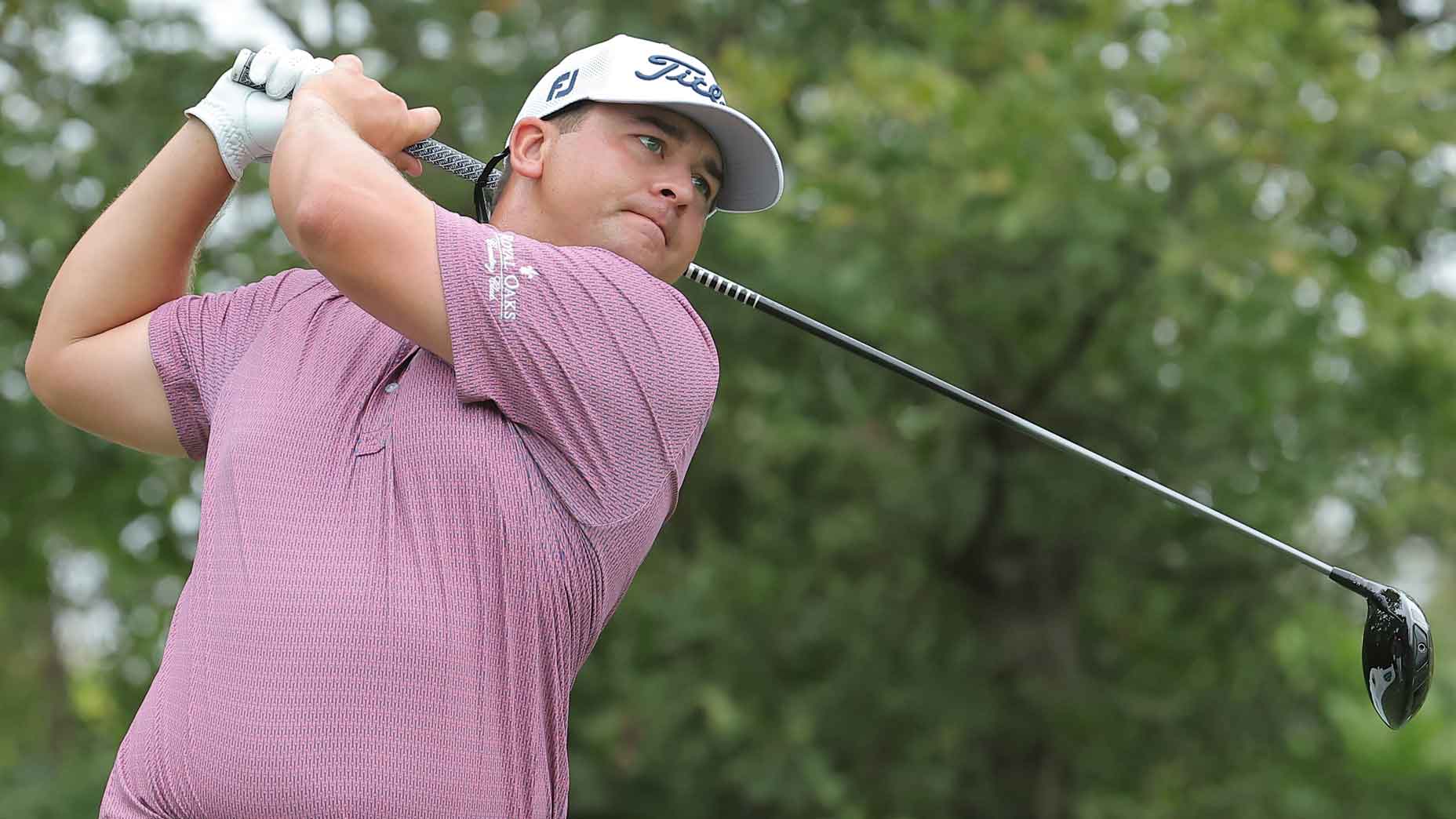
Brett White hits his tee shot on Thursday on the 15th hole at the Country Club of Jackson.
Getty Images
On one of the happiest days of his pro golf career, after overcoming seemingly impossible odds, Brett White needed to apologize.
He asked a reporter for some space to do so. So here it is.
Before one of the greatest days of his pro golf career, after overcoming seemingly impossible odds, White had told his story often. It’s a great one, obviously. It’s just that he accidentally left someone out sometimes. But not this time. Not on this day. No way.
On Friday, White thanked his wife, Natalie. Repeatedly.
“She always said I don’t give her enough credit,” he said, “so make sure you post this.”
Posted.
At the Country Club of Jackson, after the second round of the Sanderson Farms Championship, the mood was good. It was celebratory. In his sixth year as a pro, the 30-year-old from Grand Rapids, Michigan, had made his first PGA Tour cut. He showed good form in doing so, too. On Thursday, he shot a four-under 68. On Friday, on the cusp of playing his first-ever weekend, White shot a 70. After Sunday, he’ll cash a paycheck.
There was also reflection, of course. There always is in these scenes. But here, with White?
He’s gonna need some space for that, too. So here it is.
We’ll tell this story simply through some of his thoughts from now through late July of 2017, soon after he turned pro, when things started to spiral. After some concern, White was eventually diagnosed with viral encephalitis, a condition where the brain becomes inflamed due to a virus. As reported in a 2019 story by Golf Digest’s Joel Beall, White became paralyzed. He couldn’t talk. He lost his memory. He told Beall that his life was in jeopardy.
He rehabbed. He rebuilt his swing. [Again, please click over to Beall’s story for excellent detail.]
By 2018, White was playing events again.
In February of this year, at the Waste Management Open, he played in his first PGA Tour event, via Monday qualifying.
There, ahead of the tournament, on the famed 16th hole, he was sitting at a Golf Channel desk, reflecting.
“Two weeks before I ended up in the hospital, I took second; I lost in a playoff in the New Hampshire Open. I was playing good golf and then, boom, like 10 days later, I’m laid up in the hospital, not knowing what’s going to happen. Yeah, I mean, there were questions whether or not I was going to play golf. There were questions whether or not I was going to be able to walk on my own, live on my own for the early days. But you know, once they got the brain swelling under control, you know, it was all about now let’s see how much you can get back to normal. And I’ve been blessed. You know, I was lucky. I had great medical care — Spectrum Health and Mary Free Bed in Grand Rapids — and a lot of luck, I’m sure, from the big man.”
Asked reporter Damon Hack: “How did you even come to a process from walking to talking to different basic things you had to do, let alone trying to play golf again?”
“You know, it was kind of simple. It was just like, try and get better everyday. I mean, it was like that. I would do hours of physical therapy. I would do speech therapy because my speech was affected. I did occupational therapy, just trying to get my motor skills down and writing again. But it was just about, OK, once I break one barrier, what’s the next one? Golf motivated me through that. I knew I needed to be able to play golf just for my sanity. I didn’t know what level it was going to be, but it’s just a part of my identity.”
Then came this week. He Monday-qualified again. During a practice round, he was playing with a PGA Tour camera in his face, reflecting.
“I’m blessed. I feel great. I talked to a lot of people over the years who’ve reached out, and you know, they’ve said, ‘Oh, we’ve had encephalitis.’ And it just attacks people differently. It affects people differently. So I consider myself extremely blessed and extremely lucky to be out here and just to feel normal. I’m really happy, and I got a great support system, great family. Everything’s good, you know? You know, my whole goal now is to be out here more regularly; hopefully a member of this tour eventually. You know, when it’s not going well, you can go to six, seven, eight, nine Mondays in a row and not get in, and you’re kind of like, ‘Am I wasting my time and money and effort?’ You know, because traveling and getting on a plane, going to play a practice round, go play the Monday, get back home, do all that stuff, it gets a little tiring. But weeks like this, when you make it, you know, you go, ‘All right, yeah, this is worth it.’ Play in 20 Monday qualifiers and get in two, that’s actually a pretty good success rate, you know? So yeah, I’m excited for this week, definitely.
“I’ve got support from all over the place, whether it’s from, you know, people I know, my inner circle. Max Homa retweeted my tweet when I got there [at the Waste Management], and I got a little engagement from that, and that kind of stuff is pretty cool. I’ve had a couple guys say congratulations to me this week, but I think, you know, you’re talking about my story or whatever, my journey being all about perseverance, I think the game of golf is all about perseverance. I mean, you better be mentally strong and you better be willing to dig it out of the dirt and find a way because there’s going to be somebody else that’s either trying to take your job, or — I mean, I’m trying to take a couple people’s jobs, as well, so …
“Getting back to golf motivated me through all the physical therapy and occupational therapy and speech therapy and all that kind of stuff. You know, things can look stacked against you, but you got to play the hand you’re dealt, and you know, try and figure out a way to get better. Hopefully people look at my story and, you know, try and persevere through whatever they’re going through.
“I think I belong, but I know I got to go and earn it. So I feel good. I feel confident. But again, you know, it’s just about the process and that’s what my goals are this week, is to control what I can control, stay within myself, play my game, play to my strengths. There’s going to be enough stretches of birdie holes and pins and stuff that you just got to stay patient. But those are my goals this week.”
Then came Friday night. He was on to Saturday. He was standing in front of a microphone, in front of reporters, reflecting.
“Brett, you have made a cut on the PGA Tour.”
“Yes, sir.”
“How does that feel?”
“It feels good. It does. It’s been a long time coming, I feel like. But it was nice to get out there and stick to my game plan and have some putts fall. I’m proud of myself. It was good:”
“What about this week, today, what exactly about it?”
“I just think it was a tough year. I had Korn Ferry conditional. I wasn’t playing a ton of tournaments. When I did, it was either last minute or — it was just a tough year for me a little bit on the golf course. Off the golf course, it’s been a great year. My wife and I are blessed. I’ve got some sponsors since playing in the Waste Management. So off the course, it’s been a great year, but on the golf course, it’s obviously what I want to do well at, it’s been a little bit of a tough year. Late in the year to Monday in and make a cut gives me a lot of confidence going into Q-school.”
“What do you hope standing here having made a PGA Tour cut and having gone through everything you’ve gone through, what message does that send to people who maybe are going through various challenges?”
“Man, that’s a tough one. When I was going through it, I just kept on putting one foot forward. What message does it send, all that kind of stuff? I think people have to kind of look within themselves and find their meaning and all that stuff, but I know I’m playing golf, I know who and what I’m doing it for.
“Yeah, other than that, people who are going through something, just try and put one foot forward and get better every day.”
He was asked a few more questions. He hugged his dad. Then White was off to the airport.
He had to pick up Natalie.


